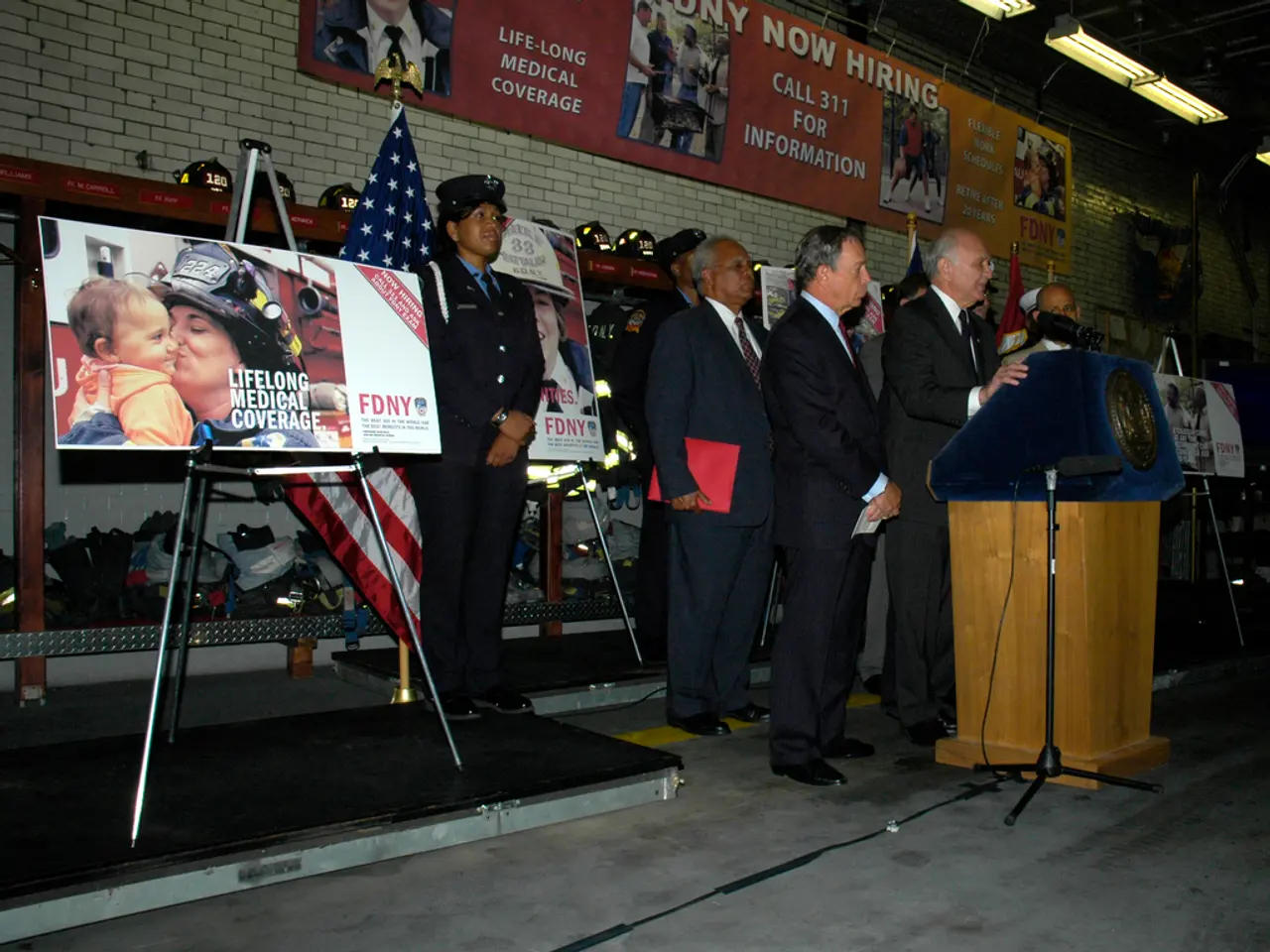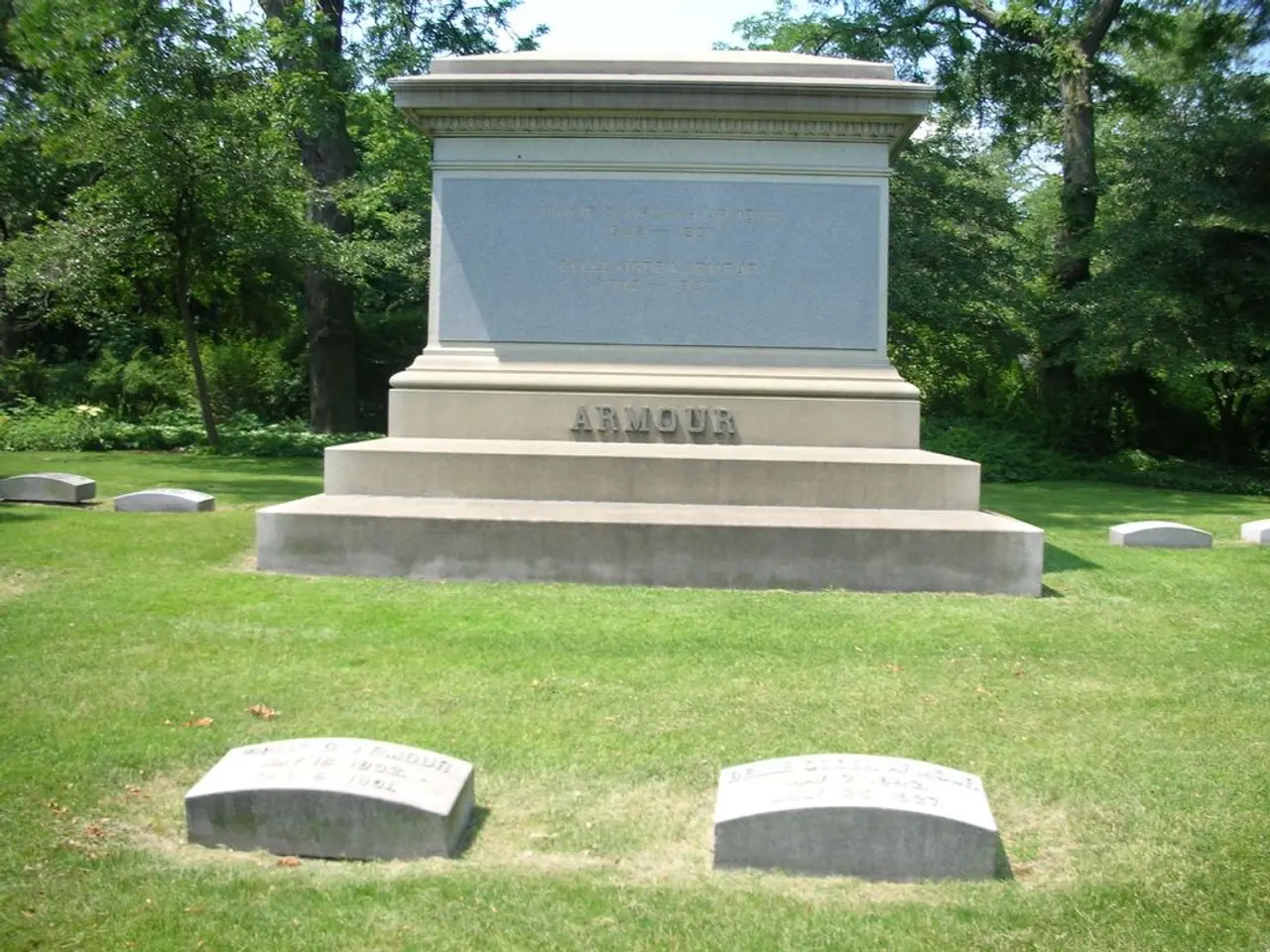Alterations in Munich's district committees' dimensions: responses and impacted areas
In the heart of Munich, a contentious issue has arisen among local politicians: the reduction in seats for the BA Neuhausen-Nymphenburg. This decision, expected to result in a loss of two seats for the district, has sparked heated discussions, especially among those who believe that more residents should be represented by a larger number of representatives.
One of the key figures in this debate is Leonie Lobinger, chairwoman of BA9. Lobinger sees the reduction as a step backwards for democratic representation and civic engagement on site. She plans to advocate for the retention of the 41 seats and have it voted on in the September session.
Felix Meyer, local chairman of the FDP in BA Neuhausen-Nymphenburg, shares Lobinger's sentiment. He considers it democratically unsound for more residents to be represented by fewer BA members. Meyer's voice in the matter is likely to be supported by BA member Felix Meyer.
On the other hand, BA22 chairman Sebastian Kriesel (CSU) argues that more members mean more specialist knowledge, more work distribution, and more discussion. However, BA2 chairman Benoît Blaser sees the situation more relaxed, stating he would have preferred the number of members to remain the same, but believes the work can still be well distributed.
Interestingly, the municipal election is expected to exceed the threshold for 41 mandates in BA Neuhausen-Nymphenburg. The threshold for 41 mandates in the district is 104,180 residents, with the expectation that this limit will be exceeded by the municipal election.
The maximum number of members remains at 45. However, the local committees in districts 1, 19, and 22 are each growing by four members. Contrastingly, the city district of Munich-Ramersdorf-Perlach has reached its maximum of 45 members and will not have more local politicians, regardless of the city district's growth.
The reason behind these changes in the number of members for various BAs is attributed to a new calculation method for the number of members of the 25 Munich BAs, which will come into effect in 2026, as decided by the city council last year. The specifics of this calculation method and its implications are yet to be fully understood.
To gain a comprehensive understanding of the changes in the size of Munich's district council, the reasons behind them, their impacts, and political reactions, it would be necessary to consult official Munich city council communications, recent local government news, or political analysis specific to Munich.
In the midst of heated debates among Munich's local politicos, the proposed reduction in seats for BA Neuhausen-Nymphenburg raises concerns about democratic representation and civic engagement, with Leonie Lobinger from BA9 and Felix Meyer from FDP advocating for the retention of the 41 seats. On the other side, Sebastian Kriesel (CSU) in BA22 argues for an increase in members, citing more specialist knowledge, better work distribution, and increased discussions. The upcoming municipal election is expected to exceed the 104,180 resident threshold for 41 mandates, and the implications of this change, along with political reactions, warrant a closer look in official Munich city council communications, recent local government news, or political analysis specific to Munich.





